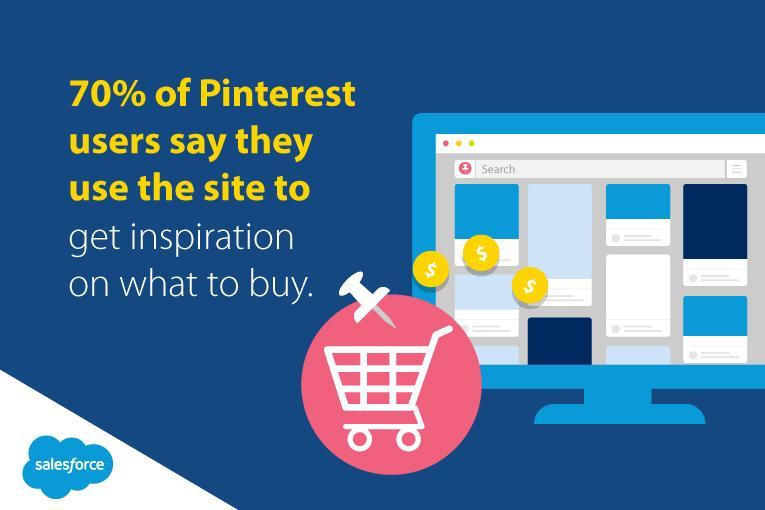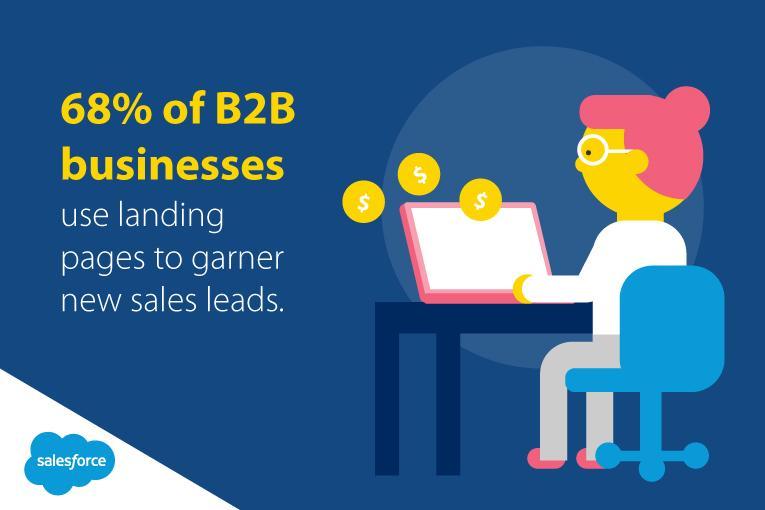
Get your FREE 30-day trial.
Please complete all fields.
Your business is only as good as the leads you generate, so finding high-quality leads should be your first priority. While there are many familiar and dependable ways to generate leads online, there are also many less obvious—yet equally effective—methods you might be overlooking. Here are a few effective, lesser-known lead generation techniques.
According to a B2B Technology Marketing Community LinkedIn survey, 61% of B2B marketers identified generating high-quality leads as their biggest lead generation challenge. Good marketers know high-quality leads are seeds from which valuable customers grow, and without them it can be like trying to reap a bountiful harvest from a barren field.
The ongoing struggle many organizations face in generating profitable leads is due to the fact that—despite their widespread use—many of the lead-generating techniques that businesses currently rely on are simply not as effective as we’d like to believe. While some of these ‘tried-and-true’ methods of lead generation may come up short, there are many new techniques that you might want to consider.
New Lead-Gathering Techniques
Few inventions in human history have had as widespread an impact as the internet. And, while the fledgling internet of the early 1990s was useful for email and a little bit of research, the internet as we know it today has grown into a virtually omnipresent entity that plays a significant part in almost every aspect of our lives. It’s at the heart of our communication, entertainment, education, relationships and, especially, our business activities. So, it’s no wonder that for most organizations, lead generation is focused primarily on capturing leads online.
However, many businesses fail to really take advantage of the current role that the internet plays in people’s lives. By thinking outside the box and connecting with potential customers in less-expected ways, you’ll be able to tap into a potentially untouched resource that your competition may not even be aware of. Here are five surprisingly effective (and often overlooked) ways to generate leads online:
1. Podcasts
The podcast is a format that has been around for over a decade, so it’s hardly ‘new’ or ‘sexy.’ However, it’s still relevant, because podcast listening accounts for approximately 2% of the total time Americans spend listening to audio sources. Even though that may not sound like a very large number, when you consider that TV, music, and video games are included in the umbrella term ‘audio sources,’ it becomes evident that even 2% amounts to a very large number. Even more compelling, podcasts account for roughly ¼ of all time spent listening to audio sources. A well-planned and executed podcast can not only help build backlinks and improve company search engine rankings, but also generate real interest. Those listeners will then become the kind of informed and excited high-quality leads that can quickly turn into high-quality customers.
2. Online Discussions/Webinars
A huge factor in generating profitable leads is the ability to connect with prospective customers. While many organizations see this necessity, and immediately run to Facebook and Twitter accounts in an effort to generate some sort of beneficial social media buzz, they often fail to really engage their target audience in the kind of back-and-forth discussion that results in total conversion.
On the other hand, Skype, Google+ Hangouts, and online business communities are perfectly formatted to allow companies and clients to have an open discussion in real time. Open webinars that allow for question-and-answer sessions are considered ‘very useful’ by 92% of webinar attendees. Build trust, share your vision of the future, and get to know the people on whom your business depends, and you’ll be doing more to generate good leads than any 140-character non-sequitur could ever accomplish.
3. Pinterest
Pinterest is a relatively simple social media platform that allows users to share images with one another. But don’t let its apparent lack of complexity fool you: Pinterest has 70 million registered users, 40 million of which are considered active (posting on a monthly basis). And of those millions of users, 70% say that they visit Pinterest in order to get inspiration about what to purchase.

By creating a presence for your brand on Pinterest, you’ll be gaining a free advertising platform with a dedicated, built-in fan base (just make sure you familiarize yourself with the Pinterest terms and conditions).
4. Content Marketing
Although content marketing may not be quite as unknown as some of the others in this list (given that 91% of B2B, and 86% of B2C marketers use content marketing), it still isn’t being fully utilized by many organizations. In fact, only 32% of marketers believe that they are effectively executing enough content.
This is because creating content is not as easy as it looks. Good content can be time-consuming to produce. There are ways around this hurdle, such as outsourcing content or investing in an automation system capable of posting relevant, pre-generated content on a regular basis, but neither of these address the real issue behind content marketing’s under-utilization. Effective content is content that solves problems for potential leads, is personalized to the needs of a specific audience and is visually appealing.
How do you accomplish this? Through in-depth analysis, and trial and error. Keep track of your key metrics, so that you can alter your content marketing campaign to embrace what is working and safely eliminate what is not.
5. Landing pages
Potential customers who take the time to visit your site have already engaged in the most difficult aspect of lead generation. By demonstrating an interest in what you have to offer, they make it possible for you to narrow your focus so the majority of your efforts are directed towards leads that are more likely to convert.
That said, across the internet approximately 60–90% of landing page visitors bounce (leave the site without visiting any other pages), and of those who leave, roughly 98% will never return. Despite this, 68% of B2B businesses use landing pages to generate new sales leads.

To ensure that these pages are treating your best potential leads correctly, make sure that the pages follow the same advice given in regard to content marketing (see above): Landing pages should be useful, specific, and aesthetically pleasing.
Above all, try to keep the pages simple. An overly complex page that takes too long to load and even longer to understand won’t even register a second glance from most visitors.
A Road Less-Traveled
Above all, make sure that your organization remains flexible. After all, not every business is perfectly suited for every form of B2C or B2B lead generation. By keeping an analytical eye on everything you do, and then comparing your methods to your results, you’ll begin to see correlations between what you’ve tried and what you’ve accomplished.
The right leads, when properly cultivated and guided along the sales process, will sprout into the kind of committed and retainable customers that help define an organization’s success. But before those leads can be harvested, they first have to be found. While many of the most effective methods are ones being used by organizations now every day, by paying attention to some of the lesser-known techniques, you may discover that when it comes to lead generation, sometimes taking the road less-traveled really does make all of the difference.